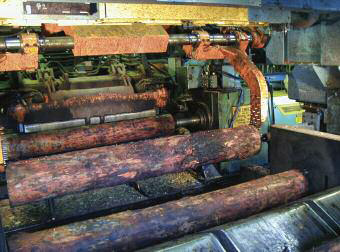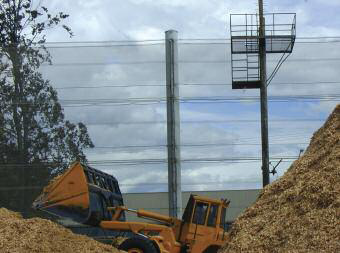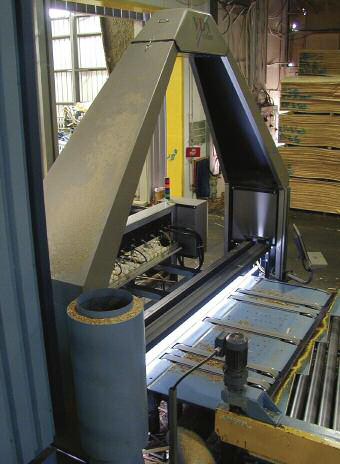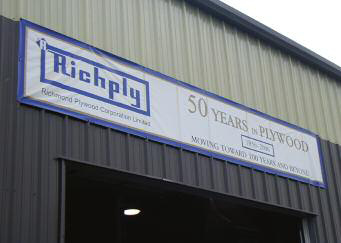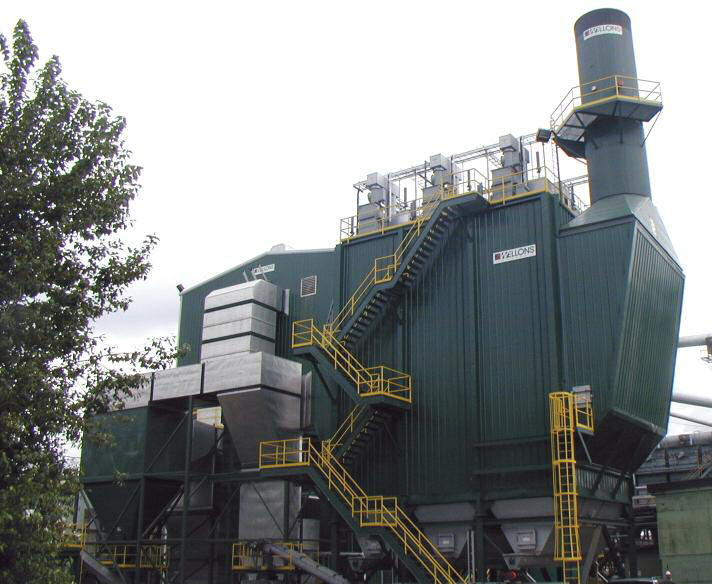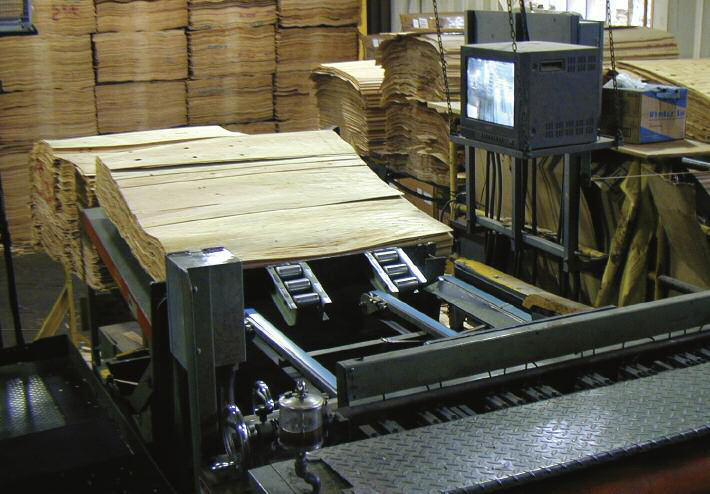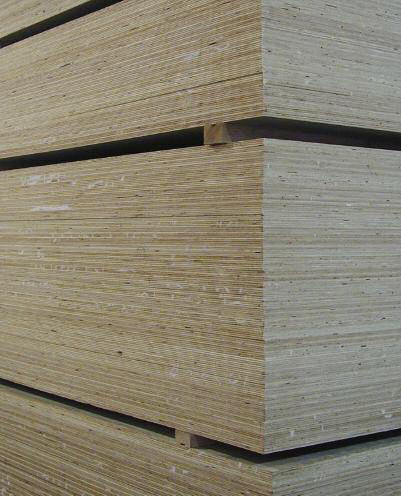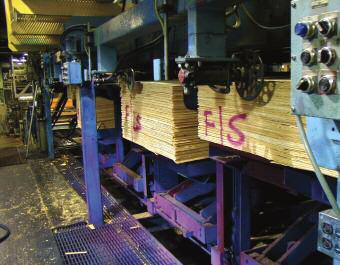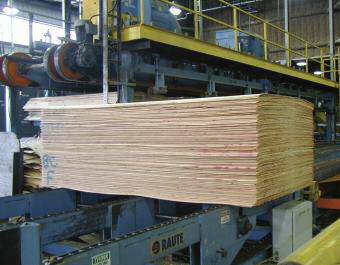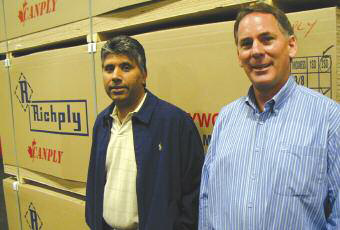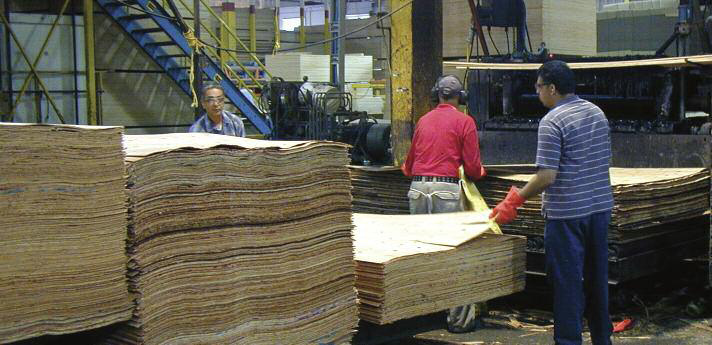Richply is firmly facing forward
8 April 2011It was 1956 – Elvis hit the charts and the Dow Index closed above 500 for the first time. And in Vancouver, Canada, 300 men pooled their resources to realise their dream of self-sufficiency; a dream that became Richmond Plywood.
Like all mills built along the Fraser River at that time, the mill’s logs were brought downstream from the bountiful forests of BC’s Interior. Today they arrive the same way, although there are now far fewer mills than existed 50 years ago. Unlike those that have closed because of the high costs associated with operating in a major urban centre, Richply has survived and, at times, thrived. General manager Joe Andrews believes he knows why.
“When I began at Richply I knew that working for a co-operative would be different to working for a family-owned or publicly-traded company,he said.
Prior to coming to Richply in May, 2010, Mr Andrew’s experience included 25 years with two major US forestry companies and a period of consulting in North America and Asia. His experience in plywood manufacturing dates back to his teenage years, working at his father’s plywood mill in Madras, Oregon.
“My plywood experience and education were appreciated by those who hired me, but I’m sure my plan for creating a profit interested them more,he said, adding that, in his opinion, Richply’s Board of directors are extremely astute business people.
“They can hire manufacturing expertise but only they truly understand how to run their business,he said, adding that major decisions often only require a show of hands. He cited the purchase of an expensive log loader he recommended should be replaced, soon after his arrival.
“It was a safety issue. The board said ‘yes’ by show of hands. That wouldn’t happen in a major corporation: quick responses to urgent needs,he said.
Mr Andrews pointed out that although the market remains highly competitive and producers aren’t being paid the price he feels they should be for high-value products, Richply isn’t experiencing many of the problems of other mills.
“The workforce is highly motivated and since most are owners, they know it’s in their best interests to keep producing the best products they can in the most efficient way possible. Staff turnover is low so we don’t have to constantly train new people. The market will pick up and they’ll be here when it does,he said, adding that he found Richply’s policies regarding ‘new hires’ (new members of staff) to be both novel and beneficial.
“Every new hire starts at the spreader, where he gets to know veneer grades, sheet quality, spread rates, etc – handling the product in its basic state. After a time they can bid for other jobs,he said, adding that the low turnover of staff and high percentage of owners working in the mill positively impacts operational improvements and the speed with which they are implemented. “The workers quickly inform management about issues affecting production, as you’d expect.”
Richply’s spirit of co-operation is further evidenced by each shareholder earning the same pay, regardless of their position. Because of this, Mr Andrews believes, each shareholder works with a high level of diligence, under-standing that he is contributing to the good of the company and thus for his own benefit.
Improvements Yield Results
Mr Andrews stated that he began looking at areas of production that needed improving as soon as he arrived at his new job.
“The three years prior were difficult for the industry, so I was pleased when my new bosses gave me the mandate to make improvements,he said. With wood being the biggest cost, he started at the green ends.
The mill has two 8ft lathes, supplying green ends equipped with rotary clippers and automatic green stackers. Log diameters vary from 6-30in, with 12in the average. In 2007, trash gates and laser XYs were added. VME controls were also replaced with PLC controls to simplify programming and trouble-shooting. A six-deck roller jet dryer was installed in 2005.
“There had been many improvements, but I felt the green ends could yield even better results for the owners,said Mr Andrews.
Improvements included replacing ball screws with planetary roller screws to improve carriage positioning accuracy and speed.
“Better thickness control has improved peel quality and recovery. We’ll be adding planetary roller screws on our other lathe in the near future,said Mr Andrews.
New controls were also installed to improve tray synchronisation and speed control, while a poorly functioning 6ft diverter was replaced. These improvements, together with new spindle controls have, according to Mr Andrews, increased the speed of the green end by almost 25%.
“We’ve improved drying efficiency as well, by eliminating gaps between sheets. We now put out 58 sheets a minute and with reduced downtime on our rebuilt dryer we’re drying an extra half a million feet of product every week. There’s more improvements to be made, but progress is good,he said.
Environmental Commitment
Recently labelled the World’s Most Livable City, the entity responsible for maintaining Vancouver’s balance between livability, commerce and environment is the Greater Vancouver Regional District (GVRD), the body Richply needed to satisfy when it looked at upgrading its drying capabilities in 2005.
The company proposed removing three older dryers and replacing them with a new six-deck dryer. Plans included tying the mill’s two dryers into a new precipitator in order to eliminate blue haze and reduce particulate emissions.
“Due diligence by previous management saw Richply being granted a permit only two weeks after its proposal was submitted. That’s quite an achievement,said Mr Andrews.
Richply also installed a new steam plant in 2007, with remarkable results: The mill’s annual gas bill dropped from CAD$2.5m to a mere fraction of that amount. The ROI was based on the company paying the bank CAD$3m a year over five years, or the gas company about the same amount every year, indefinitely.
“Needless to say, it was quickly agreed to by the board,said Mr Andrews.
Working with the community
More recently, Richply has been working with the Whistler Community Forest Project to assist the region in finding the proper balance between timber production, industrial harvesting and tourism.
Richply was chosen because it has responsibly logged nearby areas for over 30 years and so was viewed as being best able to provide the level of expertise and partnering qualities that the Whistler 2020 Vision was looking for.
Joe Andrews knows there is still plenty of work to be done, citing the need to pursue more value-adding, since plywood sheathing cannot compete with OSB.
“Our oil coating line is paying dividends and I believe the new overlay press we’re installing will serve us well. We’ve a ways to go, but we know where we’re going and we’ll be extremely efficient when we get there. Along with this project, we’re also looking at a new skinner saw to improve the quality of our panel faces,he said.
With the improvements made in recent years, coupled with the company’s value-added initiatives and spirit of co-operation, it is apparent that Richply has its sights set firmly on the future.
